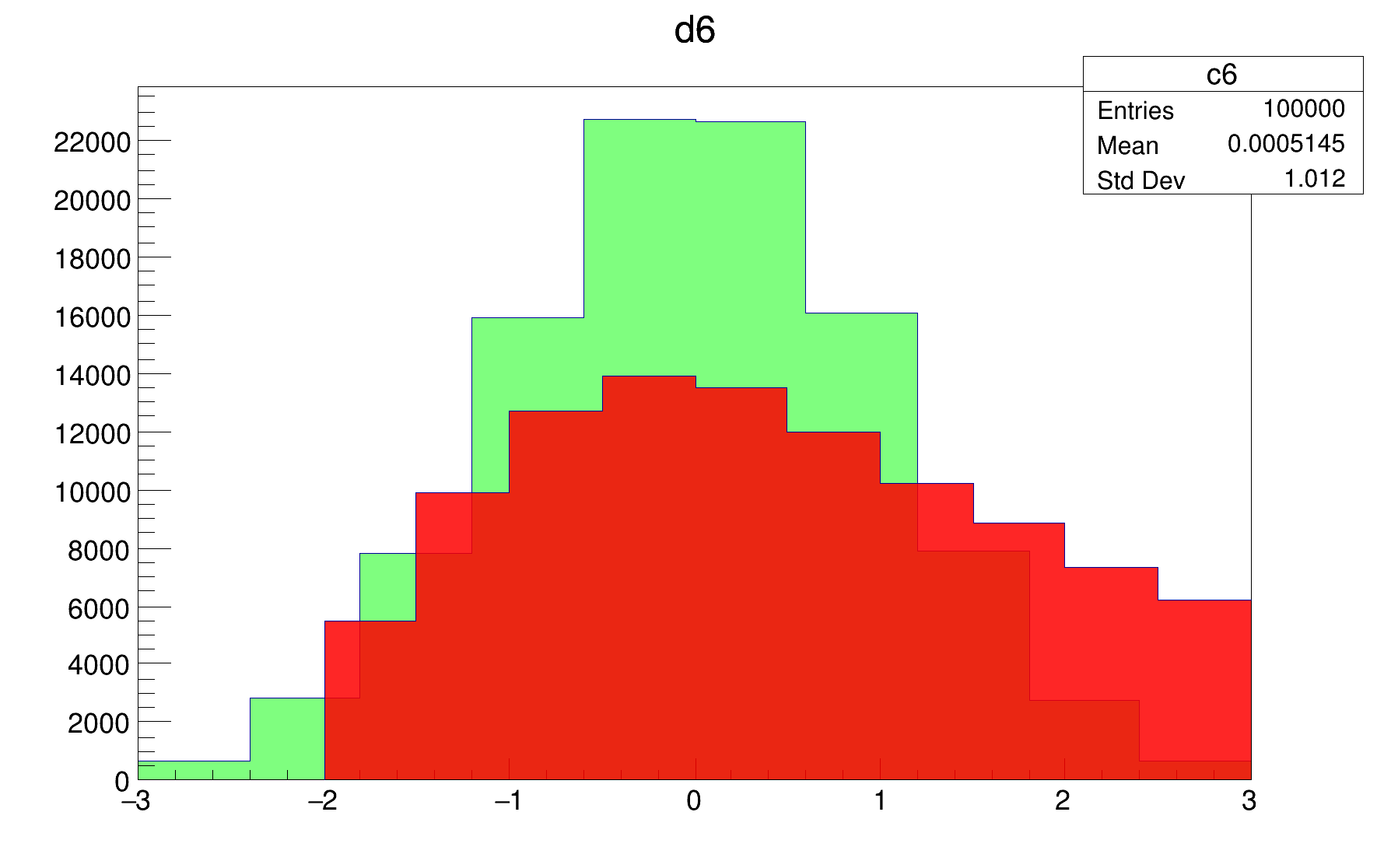This demo shows how to use transparency.

void transp()
{
::Error(
"transp",
"failed to create new custom colors");
return;
}
const Int_t redIndex = indices[0], greeIndex = indices[1];
new TColor(redIndex, 1., 0., 0.,
"red", 0.85);
new TColor(greeIndex, 0., 1., 0.,
"green", 0.5);
TCanvas *
const cnv =
new TCanvas(
"trasnparency",
"transparency demo", 600, 400);
TH1F *
const hist =
new TH1F(
"a5",
"b5", 10, -2., 3.);
TH1F *
const hist2 =
new TH1F(
"c6",
"d6", 10, -3., 3.);
}
void Error(const char *location, const char *msgfmt,...)
Use this function in case an error occurred.
R__EXTERN TStyle * gStyle
virtual void SetFillColor(Color_t fcolor)
Set the fill area color.
TVirtualPad * cd(Int_t subpadnumber=0) override
Set current canvas & pad.
The color creation and management class.
1-D histogram with a float per channel (see TH1 documentation)}
virtual void FillRandom(const char *fname, Int_t ntimes=5000, TRandom *rng=nullptr)
Fill histogram following distribution in function fname.
void Draw(Option_t *option="") override
Draw this histogram with options.
void SetCanvasPreferGL(Bool_t prefer=kTRUE)
unsigned FindFreeCustomColorIndices(T(&indices)[N])
- Author
- Timur Pocheptsov
Definition in file transp.C.
